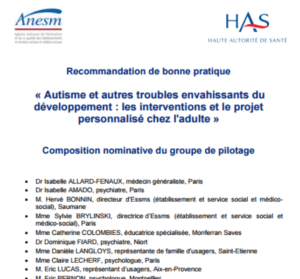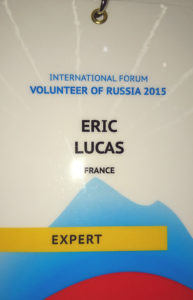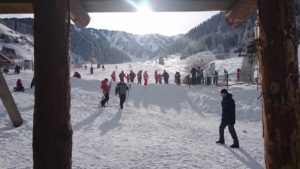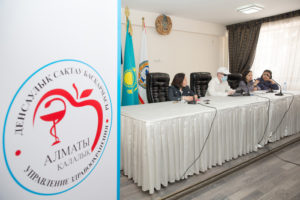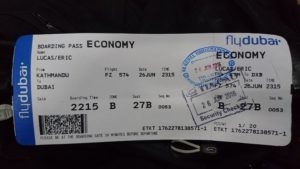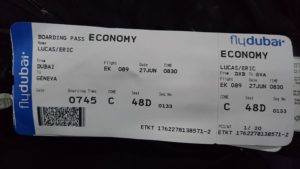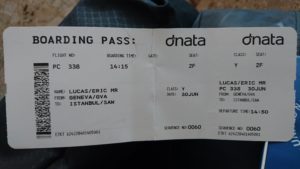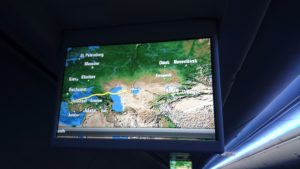1. Preliminary explanations
You can skip this “theoretical” part (the section 1) if you find it too abstract or sometimes too “personal”, or if you just want to know how the summer camp was like, by going to section 2.
But if you want to understand autism better, it is recommended to read it (which you can do later).
1.1. About Autism
Autism is not a disease, but a natural difference.
The autistic persons have a more personal, original and unique life experience.
In today’s sophisticated, hyper-connected hyper-social systems, the autistics are suffering.
Their unusual behaviours are perceived as “troubles”, and when people try to interact with them or to help them, too much often they do it without understanding the autistic thoughts, or -worse- they believe that anyway, these are wrong or even sick (or crazy etc.), which makes that the autistics are “aggressed” and irritated (which is also perceived as “troubles”, given that the non-autistic persons do not understand the “mechanisms”, and that they don’t think that they should try to do so).
For centuries (and probably much more), there have been autistic inventors and artists and great original “thinkers”, who enriched society.
Normality and “social copy-pasting” does not improve Mankind, but leads to the loss of its humaneness. (See also NatDef.org)
I am autistic and I have a good understanding of autism.
This could be verified during this summer camp, for example.
I’ve been also one of the 20 members of the Steering Group for the Recommendation of good practices for autistic adults, carried out by the Haute Autorité de Santé (High Health Authority) of France. (I resigned after 2 years because I disagreed with their hypocrite and misleading manners.)
You may see the last uncut line in this image (click to enlarge it)), or find my name (Lucas) with “Ctrl-F” in the Recommendation.
Note:
While trying to find this document in a better quality (as there are always people who have doubts – and they have the right), I did not find it but on the other hand I found a report of a meeting of the Steering Group (which mentions my name in the list), and also several written summaries of my explanations (written or oral), which was a good example of the “reasonable accommodations” that I need (independently of difficulties of another nature with the HAS, related to lobbying and some misleading manoeuvres).
Here they are (in French only):
20150911 HAS-ANESM Compte-rendu validé par les présidents
20161201 HAS-ANESM Synthèse contribution Eric Lucas
20160620 HAS-ANESM Synthèse entretien téléphonique du 20 juin 2016 Lucas
20160527 HAS-ANESM Synthèse entretiens téléphoniques Eric Lucas 14062016
20160511 HAS-ANESM Synthèse Eric LUCAS
I also noticed that parts of my sentences had been copy-pasted in the official Recommendation (especially regarding the “fundamental principles”). This is easy to prove since it corresponds to emails I sent (in case anyone still has doubts).
I also have emails from the HAS explaining how helpful my explanations were.
There is also this gratitude letter sent to me by the Director of Mental Health of the WHO (World Health Organisation) – to whom I did not ask anything – after two days of meetings in Geneva, which says (as does the HAS) that they appreciated my explanations, which are “very useful”.
And if you still don’t believe me, just read the whole present article (and watch the videos), and you will decide by yourself if you find it “interesting and useful” 🙂
1.2. The needs of the autistic people
1.2.1. That the social environment takes autism into account correctly
When placed in a social environment (including buildings or other social creations which are not taking autism into account correctly), the autistics will usually suffer from many harmful details or inconsistencies which are “aggressing” their special sensitivity and sensibility. This is done through the neurological system (which manages the “interfaces” between the mind and the body, and between the body and the rest of the world) ; that is why autism is often perceived as “neurological”.
The inconsistency, nonsense, ugliness, sensory aggressions and other painful “details” are not perceived (and thus, not understood) by the non-autistics, because their neurological system and their thinking system is “approximative”, and conditioned since early childhood to “accept” or to “believe” and to make “arrangements” with things which are not true, or which are harmful.
That is why they do not have the “reflex” to try to improve the artificial systems and environments that they create, to find the correct compromises for the most sensitive and fragile persons, which would be easy to do and which would be beneficial also for them (like for example in the case of insane overheating in winter, or of an air-conditioning set to 18°C when it is 40°C outside, which is stupid and absurd, but extremely common).
For instance, no need to be autistic to “suffer” from stupid forms (documents) or regulations; but for the autistics, it is even worse: anything seen as “incoherent” or “unjust” or “not true” will be automatically rejected by us, which generally excludes us from society, generating a “handicap” (because of the fact of being more “straight” than the “normal” people) or a “disability” (being “unable” to take lies for truths, or to see that an apple is obviously the symbol of a computer because it is the symbol of a city, etc.).
Being the first ones to suffer from the defects of the “vague”, “lazy” and often “perverted” non-autistic systems, the autistic persons can be seen as the “warning lights” of a global social system which is proving every day a little bit more to be “sick” and dangerous (illusion, wars, terrorism, destroying the planet etc.).
1.2.2. To learn how to manage the “non-autistic” (social) manners
“In a perfect world”, the autistics would be left in peace, and respected, like you respect a blind person when you see a white walking stick, without thinking that she is “sick” and without daring to judge her inner spiritual life. Indeed, after all, why should we be forced to be “social” and to “communicate” all the time, like “social machines” ?…
But in today’s world, the “social dictatorship” and the “normalitarism” are so strong and everywhere, that our sufferings are way too much and that we need to do, by ourselves, a “minimal adaptation”, we need to learn the basics of the non-autistic manners and “tricks”, in order to avoid being victims, and in order to find a place inside this “super-social” society, or at least a place somewhere at the border, like I did.
That is why it is indispensable to “learn non-autism”, like learning a second language.
1.2.3. To have our autistic peculiarities respected, and our special qualities encouraged
But when an autistic learns non-autism, he (or she) should not get a “brainwash” that would try to “erase” his (her) autistic characteristics. Like when you learn English, you don’t have to “forget” your native language, which remains useful “in your own world” (your country), and which is closer to your “real you”.
Simply because he is different and “original” (“very unique”), any autistic has “special qualities” which are his personal strengths and which should be found and developed, instead of having them being mocked and deterred.
It is possible to find the right balance between “minimal social adaptation”, and “keeping and respecting one’s own autistic special personality and mindset”. Like some people are bilingual.
To learn more, you can read:
– the text of the “Almaty Autism Speech“;
– the ” Explanations about autism, by the Autistan Diplomatic Organization“.
1.3. About the Autistic Alliance
I created this concept last year, after noticing that the social relations are very “polluted” and not enough efficient, even when people are of goodwill, because of a very big problem: the “non-understanding”, problem which is due to the fact that people are sticking to “little social boxes” and too much afraid to explore other “boxes”.
This problem is affecting :
– The different non-autistics groups between themselves (see the conflicts and wars and destructions and all the other stupidities) ;
– The persons who want to help the autistics (especially if they believe that the “autistic thoughts” are “sick”, which makes that they will never even want to try to understand them) ;
– And even most of the autistics themselves, because in general they live “in their bubble” and they don’t even wish to be involved in the “surrounding mess”.
I think that not only I am “autistic” but also I have an additional special capability allowing me to “travel” between the countries, the “social boxes”, the mindsets, etc.
It is not difficult for me to understand non-autistics and autistics (in most cases), so why not doing something useful, trying to make “bridges” and reduce misunderstandings, confusions, exclusions and unnecessary sufferings?
So the idea is to find other autistics like me, and also, of course, all kinds of non-autistic persons who want to try the experience of being advised by autistics, in order to “do better” with the autistic population.
This is the main goal, but I think also that the “free spirits” like me can be useful to help non-autistic groups to understand themselves together. In fact, it is easy for me, because I do not belong to any of these groups, so I can remain unbiased and realistic. And I can see the “artificial social layers” in which they are “glued”, and that they cannot see. This could be a secondary goal for the Autistic Alliance.
So, since last year, I travel the world and collaborate with various autism organizations.
This is how, after being invited to Russia to explain how I managed to overcome many of my “autistic difficulties”
(and where I could do various little presentations),
I got in touch with the parents’ organization “Ashyk Alem” in Almaty, the economic capital of Kazakhstan, and then, with the Pioneer Mountain Resort.
1.4. February 2016 in Almaty
Zhanat Karatay (one of the co-founders of Ashyk Alem, and Director and owner of Pioneer), is the mother of an autistic boy, Alibek, who was awarded by an autism organization in Canada last year.
He was a non-verbal autistic for several years, but she managed to provide him with a “successful education”, for instance by involving him in many activities and travels, with “normal” children, and by allowing him to fulfil his passions (he makes short movies with modelling-clay characters, and I find them really impressive and nice (and funny)).
In Canada, she saw a positive image of autism.
So when I met her and I explained my vision about autism and how I succeeded also, with my own way, she was not hard to convince and she knew I was right; she heard me saying things that she suspected but did not dare to really think before; it became very obvious that there are other ways to consider autism, than the usual “disease” or “tragedy” beliefs or concepts.
1.4.1 Adaptive skiing
Zhanat invited me to her little mountain resort close to Almaty city, called “Pioneer Mountain Resort”, and I experimented with skiing.
I wrote a little text describing the benefits of this experience, and it has been published in this article:
The benefits of adapted skiing as seen by an autistic person
(at Pioneer Mountain Resort)
Added in 2021
Recently, I found that I learnt another lesson on this occasion:
Ski and difficult things
If you allow the fear and negative thoughts, then you are disturbed by them, then you cannot focus enough on the thing to do, and you fail, or fall.
I had to fully adapt (without focusing on other things), otherwise, I would fall.
If I focused on the idea “I cannot do it, I will fall, for sure”, then sooner or later I would fall, because in this very difficult situation (gliding fast, with “surprises”), my mind cannot control my body fast enough.
I think that this “principle” works for many things: if you really believe that you cannot do something, then how can you order your body (or your intellect) to do it? The connections won’t be created, it is like if there is a “bad noise” ruining the coherence of the “information” (the neurological signals).
1.4.2. Conference about autism (“Almaty Autism Speech“)
On the 12th February 2016, Zhanat organized a conference for me (I was the only speaker), where I could explain my vision of autism, which is very different from the “usual theories”.
It was the first time I could talk really seriously (maybe too much) in a real conference about autism, to people concerned by autism (before that, I talked at the UN, WHO, such things, not specialized in autism).
There were not so many people, maybe because the parents here are not used to see autistics explaining autism, and they don’t believe it is possible, or maybe they think it cannot be really serious.
If they think that autism is a disease, then “an autistic person doing a presentation” probably sounds like a “bad joke”.
And there were some “professionals” who left the conference shortly after I started, apparently because I was not “looking autistic” (and/or because they did not like what I said).
The stereotypes are hard to fight. But anyway we need to try, and to start with something.
Unfortunately, the “medical beliefs” are still poisoning autism, preventing the parents to access a true understanding of autism.
Anyway, this conference was very important and useful for me, because it allowed me to publish my thoughts and theories about autism (which are very different from the usual concepts), so anyone can read it (even though I never heard any feedback about my 100 mn text, like if no one was interested (or “able to read”), which is really a pity because so many people want to understand autism and here they have a chance to do it… but probably this lack of interest is “normal”…).
1.5. Invitation
After Kazakhstan in February 2016, I made presentations and meetings in other countries (in the Emirates, or in Nepal), which were less theoretical, more adapted and more appreciated by parents.
I had decided not to come back to my country (France), because of all the social and political nonsense there, regarding autism but not only.
Zhanat had invited me as an autistic counselor to her summer camp, and I accepted.
I left Kathmandu on June 27 to make a presentation (on altruism and autism) at the United Nations in Geneva, in a forum on volunteering, on the 29th.
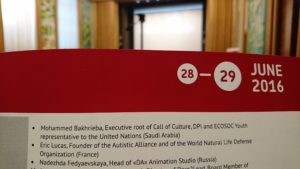
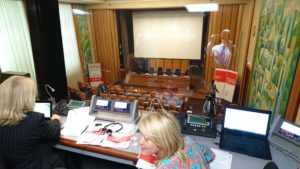
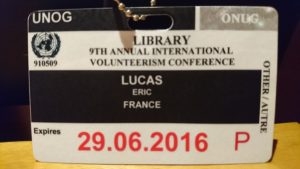
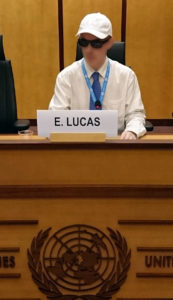
While there was no relation between the organization of this conference and my new friends from Kazakhstan, it took place in the “Kazakh room” of the Palais des Nations in Geneva (which is characteristic by its Kazakh decoration, and which I find also the most beautiful and the most modern conference room there).
This is what I call “consistency” 🙂
(Corrective note from 2021: By updating this report, I see that in May 2016 a conference room was renovated and inaugurated, the futuristic “Emirates Room“, which is undoubtedly much better.)
On the 30th I returned to Almaty and the first “season” of 10 days with the children started the next day.

